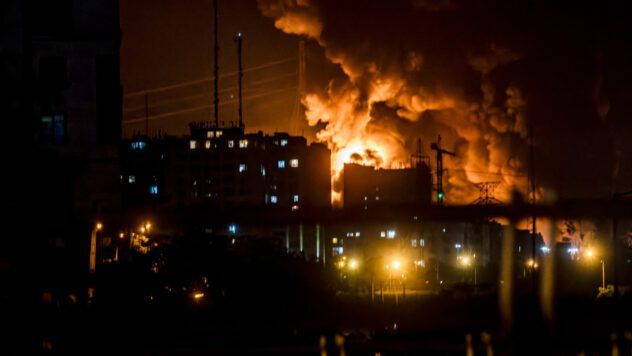On June 23, U.S. stock markets rose while oil prices fell. The reason is that fears that Iran would restrict oil supplies in response to U.S. airstrikes have eased, giving investors hope that the global economy will not be harmed by oil shortages.
AP writes about this.
What's Happening in the Markets After the US Strikes on Iran
On Monday, US stock markets saw gains, with the Dow Jones, S&P 500 and Nasdaq all up between 0.6% and 0.8%.
Now watching
Tesla shares rose 9.4% after testing self-driving taxis in Texas, pushing the S&P 500 index higher, AP reports.
However, Hims & Hers Health shares fell 32.3% due to the end of cooperation with Novo Nordisk on the drug Wegovy.
European markets were down slightly, with France's CAC 40 down 0.7%. In Asia, the Hang Seng rose by the same amount.
What is the price of oil
Unlike the stock exchanges, oil prices have fallen, rising 4% on Sunday evening as the market reacted initially to the US airstrikes.
However, on Monday the situation changed, with a barrel of American crude falling to $69.34 (-6.1%) and Brent to $71.50 (-5.3%). This brought prices back almost to the level seen before the fighting began, when American crude cost just over $68.
Oil prices fell sharply on June 23 after Iran launched a missile attack on the US Al Udeid air base in Qatar, a potential signal of a desire to de-escalate the conflict.
“Perhaps most important for financial markets, the retaliatory measures did not appear to be aimed at the flow of oil. Throughout the war between Israel and Iran, there was concern that it could reduce global oil supplies, leading to higher prices for oil, gasoline and other products made from crude,” the AP writes.
It is noted that Iran could block the Strait of Hormuz, through which 20% of the world's oil passes, but analysts consider this unlikely, since Tehran itself exports oil through it, mainly to China.
Some hope the conflict with Israel will be short-lived and will not hurt the oil market. Others warn that if the strait is closed, oil could rise to $130 a barrel, which would lead to higher fuel and commodity prices and make it more difficult for the Federal Reserve to cut rates.

